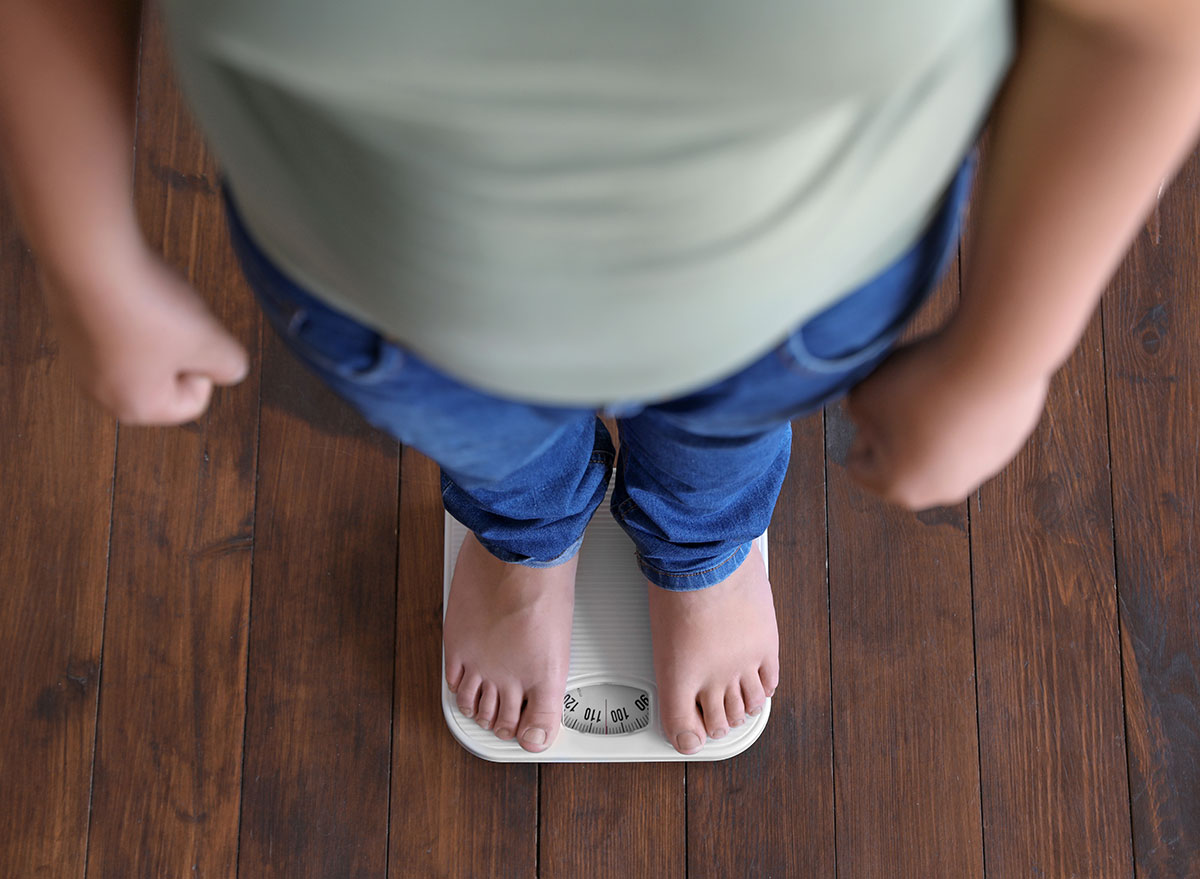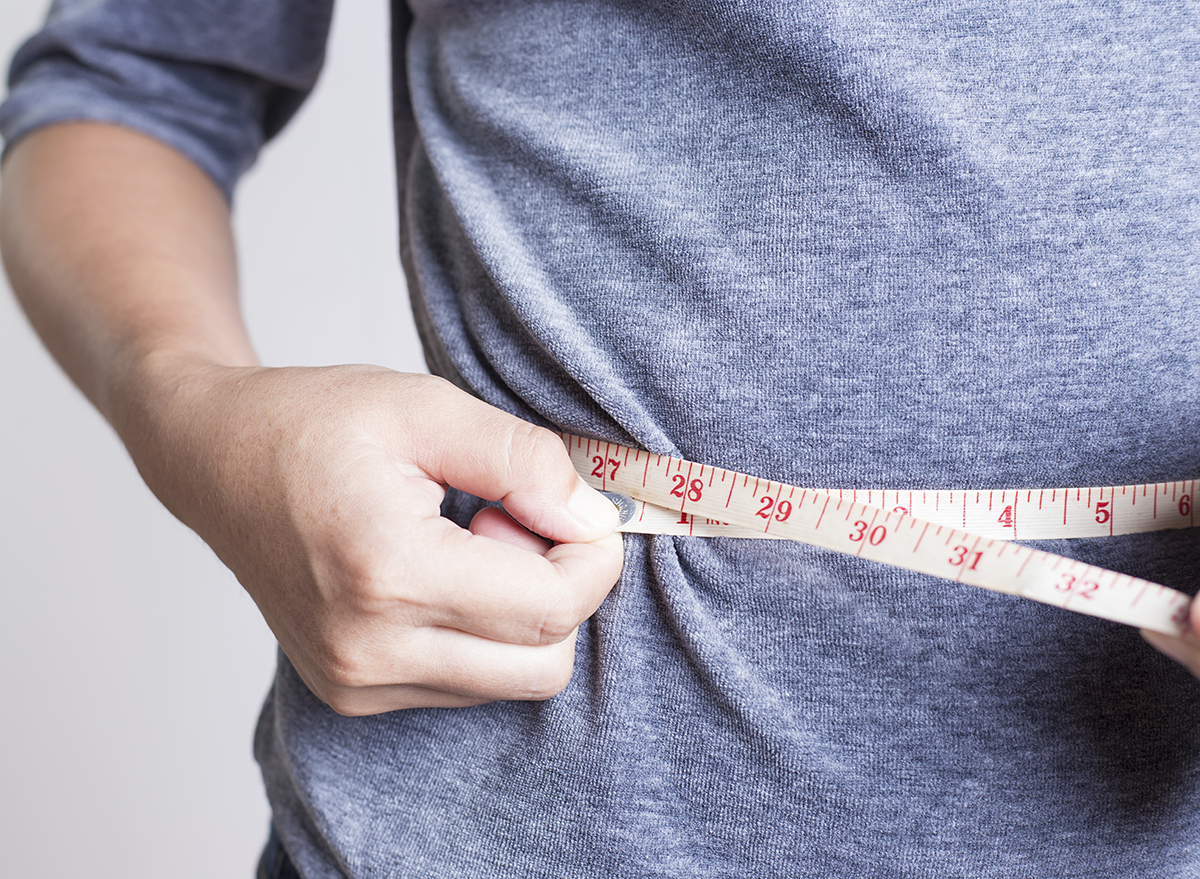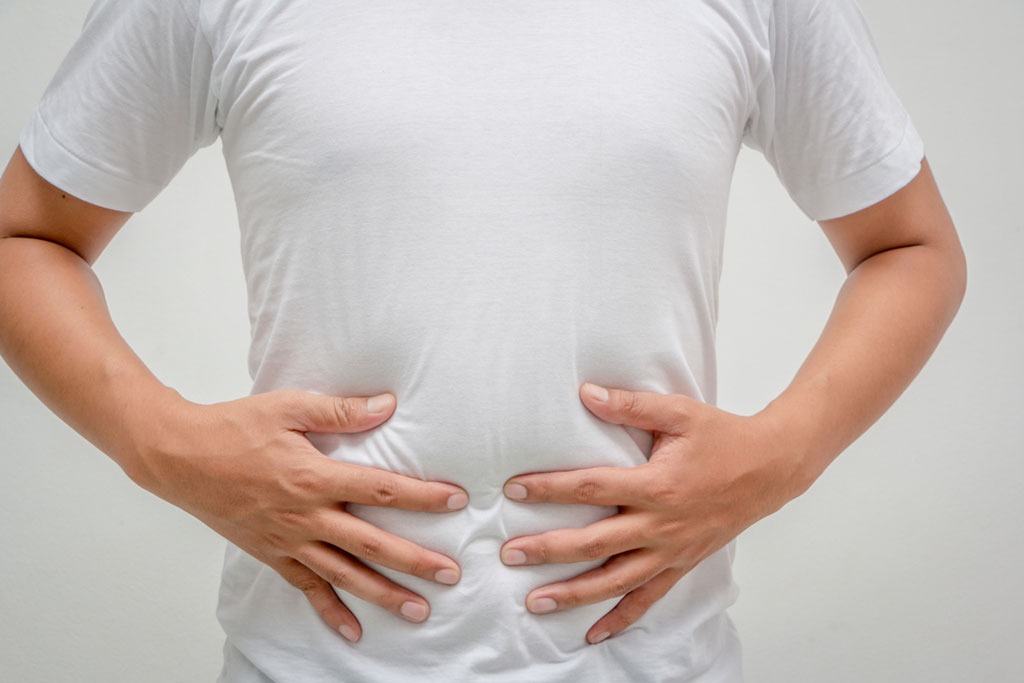Side Effects of Eating an Entire Pint of Ice Cream, According to Science

Why dirty up a bowl when you can eat ice cream right out of the pint? The only problem is that this eating habit can lead to overdoing it on ice cream—and you may experience some negative side effects.
While there is likely little long-term damage you can do to your health by consuming an entire pint of ice cream just once—besides feeling lethargic and bloated—there are some health issues you should be aware of if this tends to be a common habit of yours. And the risks of consuming an entire pint of ice cream will increase if you have existing health issues such as being overweight or obese, have diabetes, high blood pressure, high cholesterol, and more.
Read on to discover the terrible side effects of eating a pint of ice cream, and for some more positive news, don't miss 7 Healthiest Foods to Eat Right Now.
Your risk of heart disease may increase

Some of the absolute worst pints of ice cream can include upwards of 44 grams of saturated fat — that's 220 percent of your daily recommended intake! These saturated fats can increase levels of "bad" cholesterol, thus increasing your risk of cardiovascular disease.
You may experience brain fog

Not only does a pint of ice cream contain over double the recommended intake of saturated fats, but it can also include double the amount of added sugars. What does that mean for your health? An extensive review in the journal Nutrients found that diets high in saturated fat and sugar can weaken cognitive skills and memory. The exact opposite of these 13 Healthy Foods That Boost Your Memory, According to Nutritionists.
You may gain weight

If you increase your calorie intake by 500 to 1,000 calories per day, it can result in a one to two-pound weight gain by the end of the week as it takes an extra 3,500 calories to gain a pound of body weight. Eat just one pint of ice cream in a week—some may serve up over 1,200 calories—and you're halfway to gaining an extra pound if you maintain the same diet as you do every week. Eat two pints of ice cream? You'll see that extra pound on the scale.
You may gain belly fat

Weight gain isn't the only thing you should be concerned about when you eat an entire pint of ice cream. When the number on the scale increases, it can mean a number of things. While some are innocuous or even healthy, like water weight or muscle gains, most are related to increases in body fat. Body fat—known as subcutaneous fat—can accumulate in any place on your body, but belly fat—also known as visceral fat—is a unique class of fat.
Visceral fat is stored in the belly, near the liver, stomach, and intestines. It can also build up in the arteries, all of which actively increase the risk of serious health problems such as type 2 diabetes, some types of cancer, and heart disease.
Sugar, and fructose in particular, has been identified as a main dietary cause of increased belly fat. Consuming an entire pint of ice cream can equate to taking in over 90 grams of added sugar, which, when mostly from sugar, will be 50% fructose, and can contribute to belly fat—especially in tandem with a diet already high in fructose from sugar-sweetened beverages like soda.
Your gut health will suffer

The beneficial bacteria that live in your gut microbiome and support your overall health thrive on a diet rich in fiber. They don't do so well when you load up on sugar and saturated fats—what you'll find in a pint of ice cream. Studies have found that diets high in fat can decrease levels of beneficial bacteria Bacteroidetes and increase levels of bad bacteria Firmicutes, alterations that have been associated with obesity and subsequent development of chronic diseases. Other studies add that a high intake of fat and saturated fatty acids may negatively affect microbiota richness and diversity—which means your microbiome health suffers.
For more about the frozen dessert, make sure you check out The Unhealthiest Ice Cream Pints in America—Ranked!








